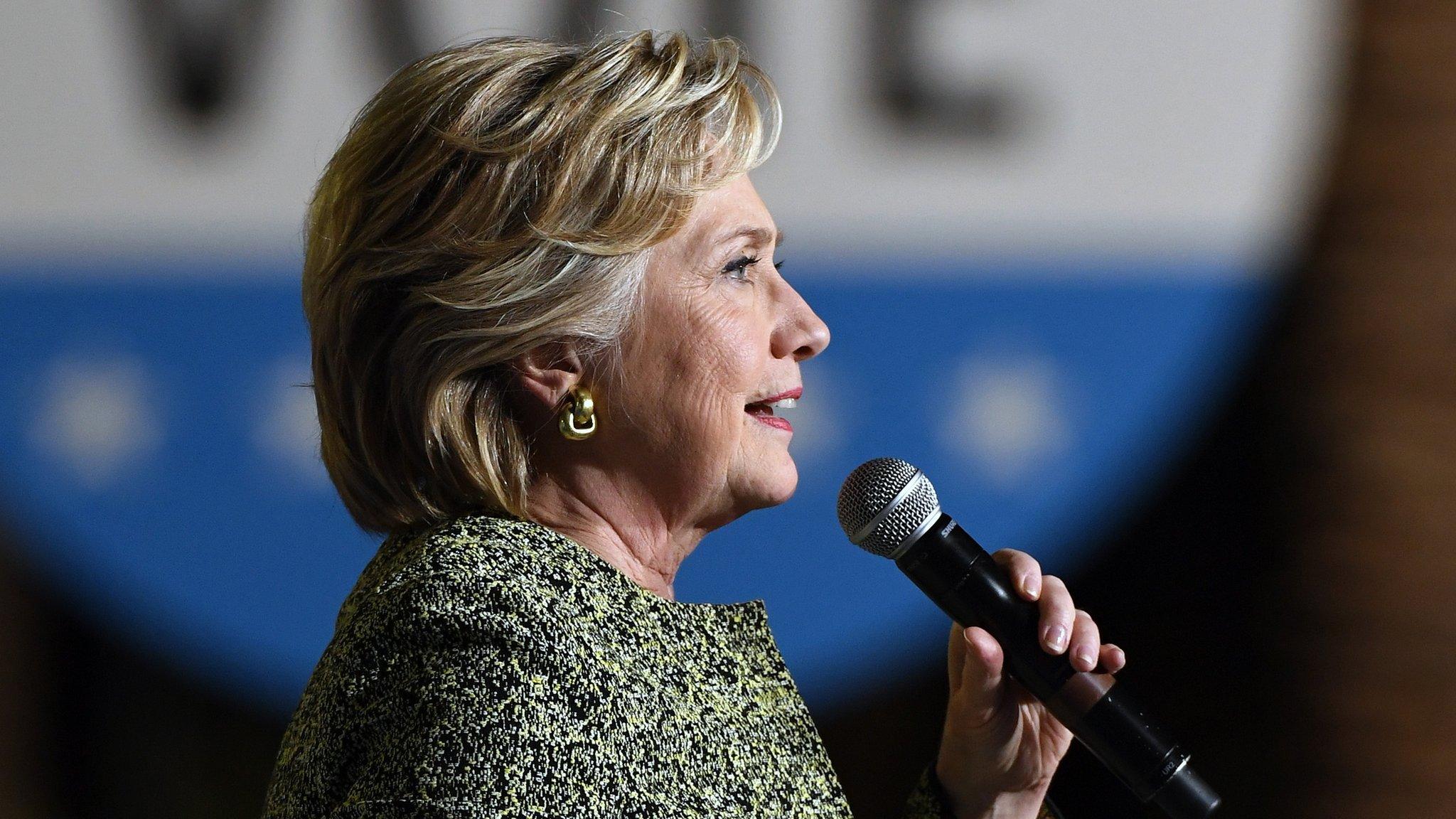Trump Tweetwatch: Intelligence agencies taking 'one last shot'
- Published
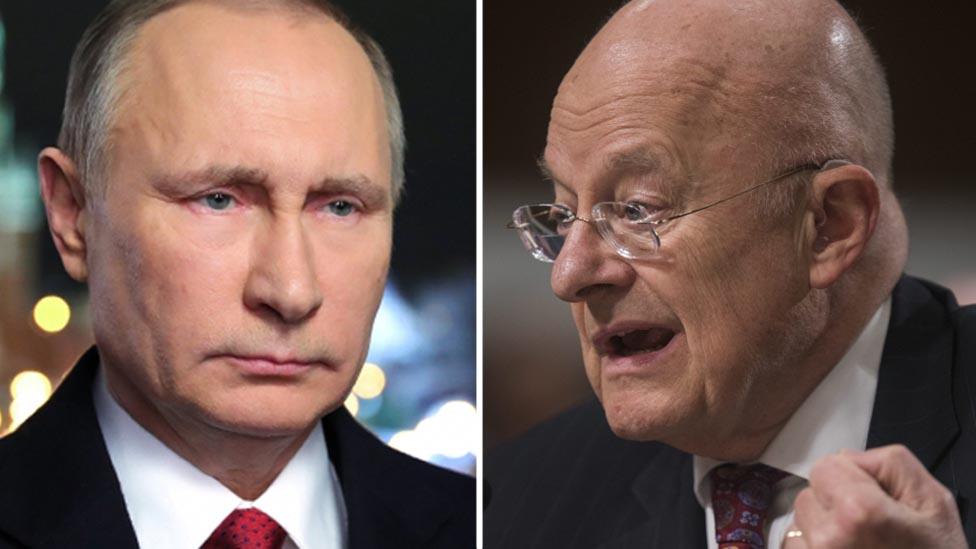
Gen James Clapper (right) said Vladimir Putin's "motivation" for hacking Democratic Party emails will be revealed
Donald Trump often tweets several times a day but doesn't dwell on policy issues and only speaks to the press sporadically. So his 140-character messages are the main insight we have into the thinking of the US president-elect. What can they tell us about his attitude towards US intelligence agencies?
The tweets
Mr Trump has written a series of furious tweets following reports that Russia holds compromising material on him that could have leave him vulnerable to blackmail.
Denying the claims, he said: "Russia has never tried to use leverage over me. I HAVE NOTHING TO DO WITH RUSSIA - NO DEALS, NO LOANS, NO NOTHING!"
He went on to attack US intelligence agencies, tweeting that they "should never have allowed this fake news to "leak" into the public.
"One last shot at me. Are we living in Nazi Germany?"
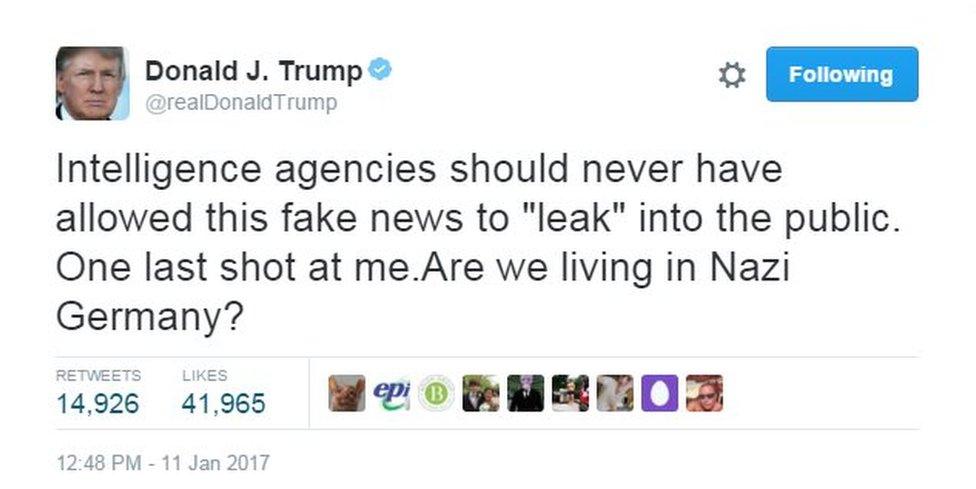
What does he mean?
Mr Trump's tweets are often subject to interpretation. But in this case he appears to be suggesting that the FBI and the CIA are responsible for the publication of embarrassing allegations against him.
Rumours about unconfirmed information in a 35-page dossier have been circulating in political and media circles for months. But it is not clear who released the files.
In the same tweet, the US-president elect also seems to say the intelligence agencies maliciously released the information as "one last shot" before his inauguration on 20 January.
Once Mr Trump is president he will have the power to appoint the heads of the CIA and FBI and the Director of National Intelligence.
It is not clear what he is referring to when he asks: "Are we living in Nazi Germany?"
Read more on Donald Trump's tweets:
What has Mr Trump said before about the US intelligence agencies?
Mr Trump has recently denied he is "against" US intelligence agencies over their claims Russian hackers meddled in the US election. "In fact I'm a big fan," he tweeted at 13:45 EST (18:45 GMT) on Thursday 5 January.
His comments appeared to contradict previous tweets pouring scorn on the agencies and their findings.
They came just days after he had seemed to side with Julian Assange in casting doubt on findings by the FBI and CIA, by repeating the Wikileaks founder's statement that Russia had not passed on information stolen from Democratic Party emails.
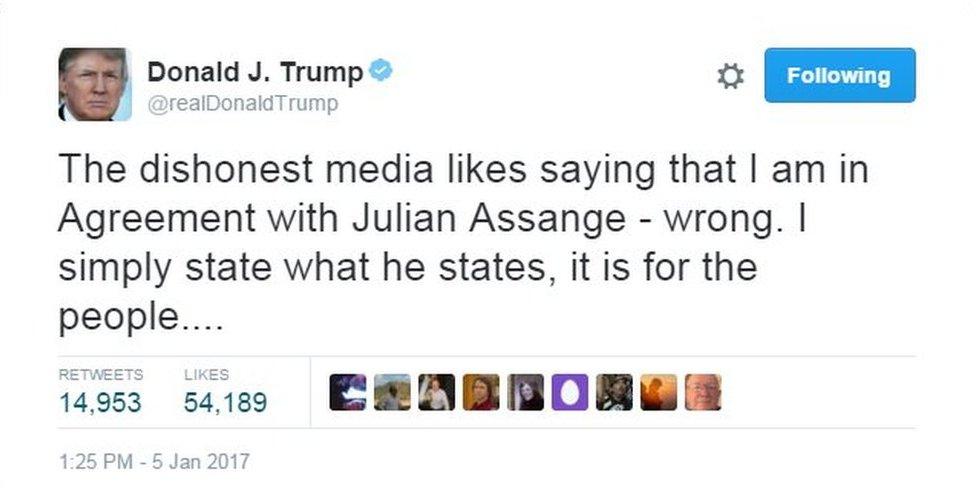
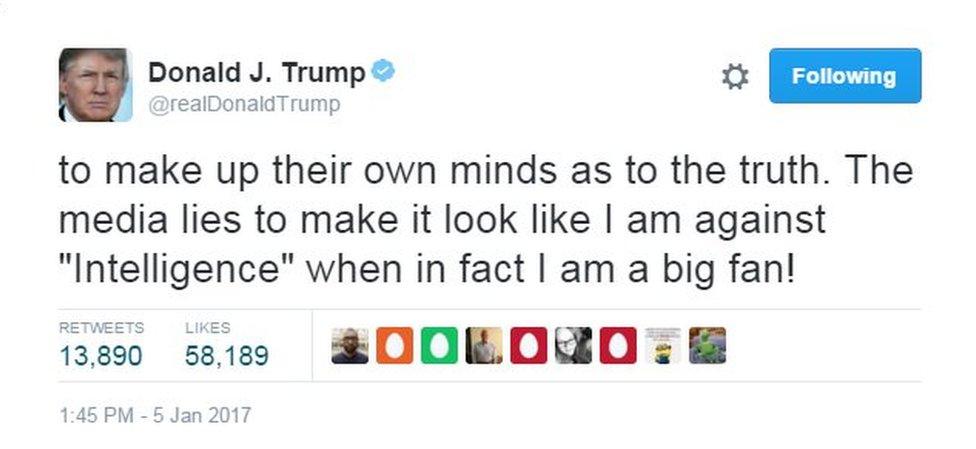
The FBI first confirmed back in July that it was investigating how thousands of Democratic National Committee emails were stolen. At the time, Mr Trump said allegations from Hillary Clinton's campaign that Russia could have been responsible were "a joke". Russia has itself denied the claims.
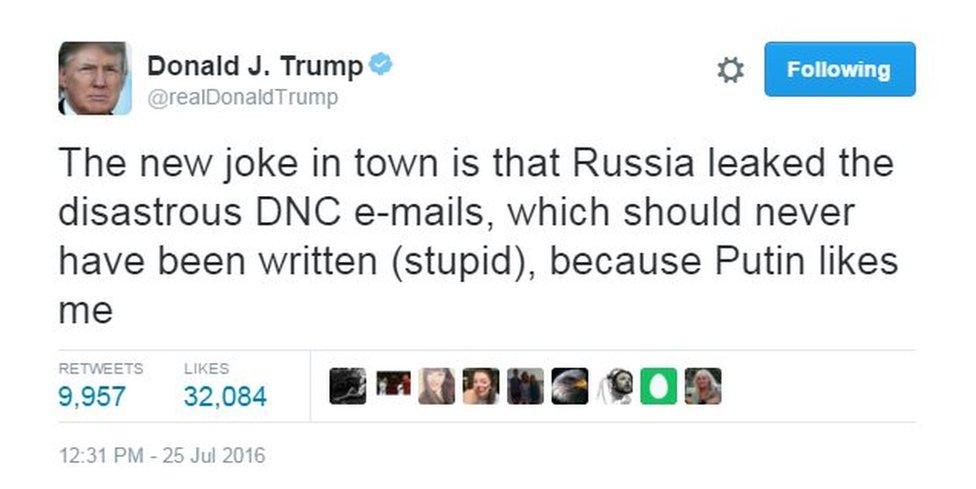
Two days later he was accused of encouraging foreign powers to hack Mrs Clinton's emails - the subject of a scandal over her use of a private server.
"Russia, if you're listening, I hope you're able to find the 30,000 emails that are missing," he said in a news conference in Florida.
The Republican followed that up with a tweet suggesting anyone with hacked emails should hand them to investigators.
Read more: 18 revelations from Wikileaks emails
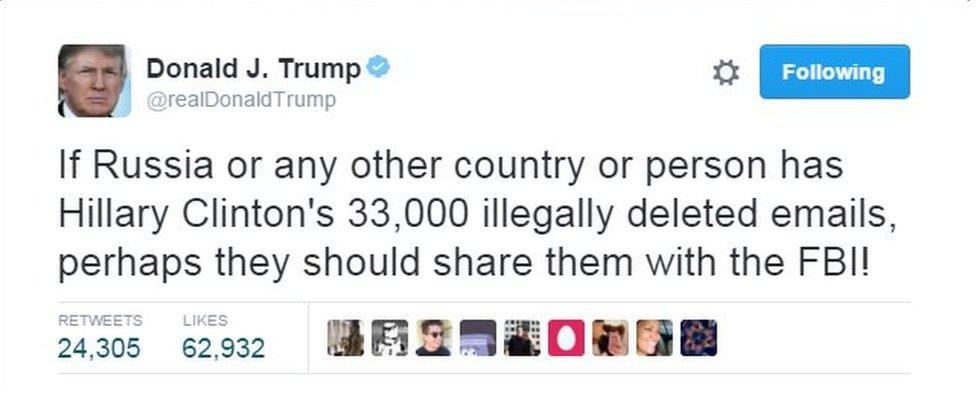
During the presidential debate on 26 September, Mr Trump ridiculed the claims of Russian hacking further, telling his rival: "It could be Russia... It also could be somebody sitting on their bed that weighs 400 pounds, OK?"
He remained sceptical - even as both the FBI and the CIA said they were increasingly confident that Russia's government had directed the hack.
It didn't stop with his victory in November's election either. In December, the CIA said it believed Russia's intention was to help Mr Trump in the poll, prompting the US president-elect to take aim at the intelligence agencies' evidence. "Unless you catch 'hackers' in the act, it is very hard to determine who was doing the hacking," he said.
These claims were widely disputed by experts. His suggestion in the same tweet that the issue had not been raised before the 8 November election also appeared erroneous considering the discussion had by then been going on for many months.
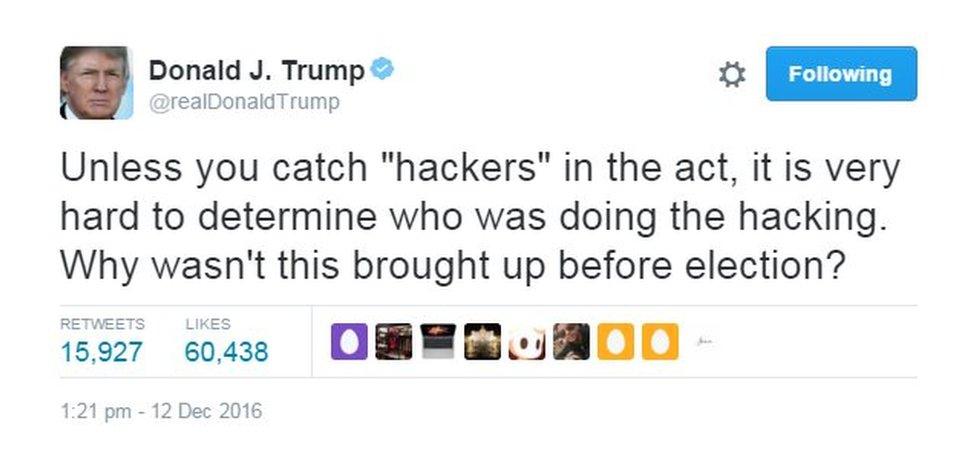
What has Mr Trump said about working with the intelligence agencies?
Statements from Mr Trump have set the future commander-in-chief at odds with both the intelligence agencies and previous administrations.
In December, he said he would only want to hear from intelligence officials every now and then rather than receiving formal briefings five times a week like his predecessors.
"I'm a smart person," he said. "I don't have to be told the same thing in the same words every single day."
He has poured scorn on the agencies' intelligence, including in a tweet on 4 January when he implied officials did not have enough proof.
He tweeted: "The "Intelligence" briefing on so-called "Russian hacking" was delayed until Friday, perhaps more time needed to build a case. Very strange!"
Read more: Does Trump need a daily briefing?
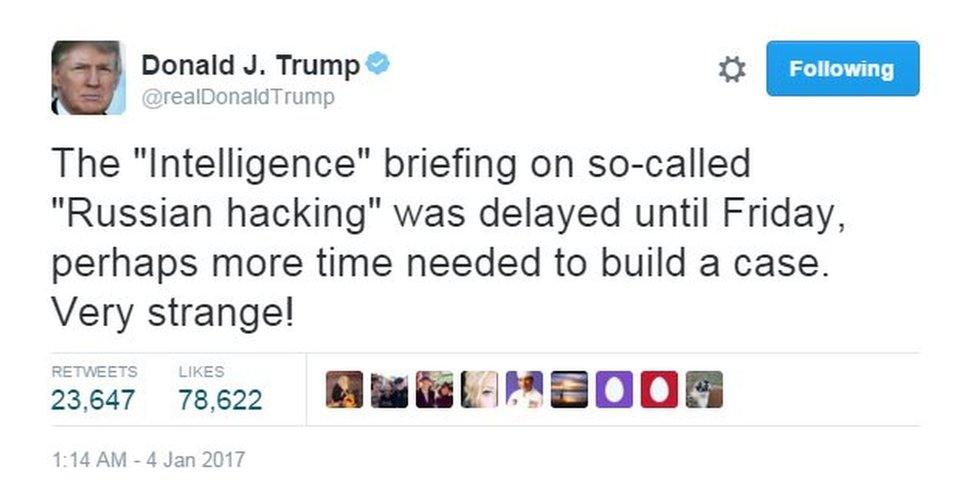
But, following the report on the issue, Mr Trump said in a statement, external: "I have tremendous respect for the work and service done by the men and women of this community to our great nation," referring to the intelligence community.
- Published11 October 2016
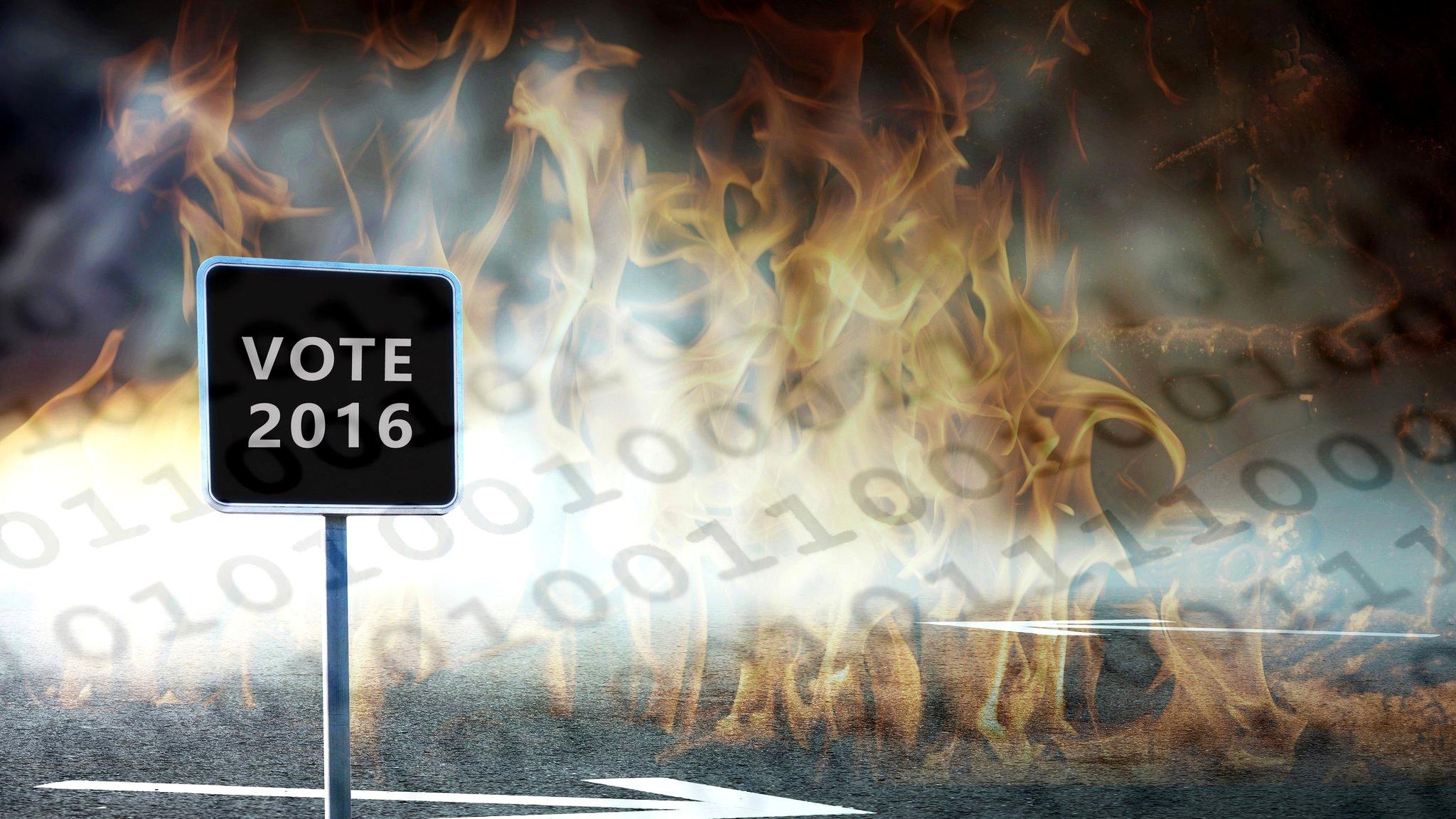
- Published4 January 2017
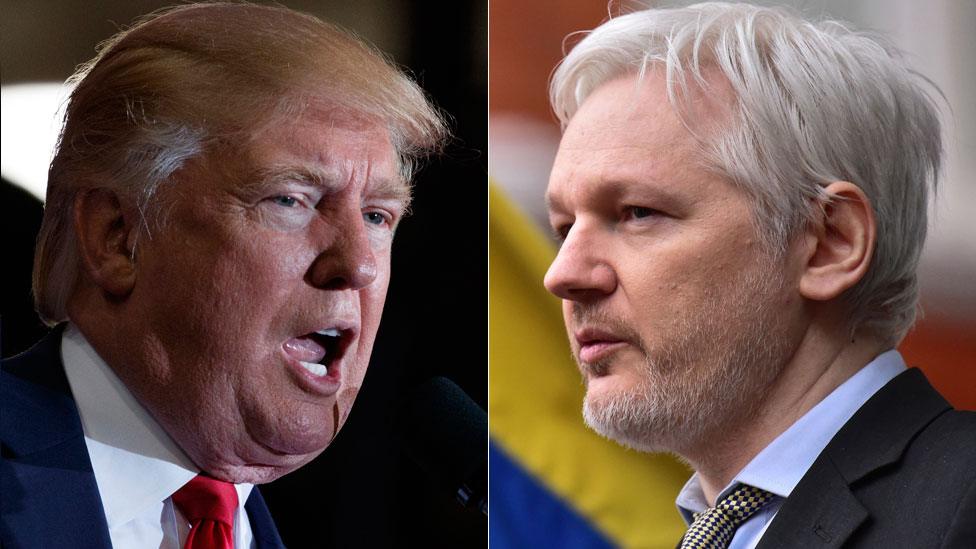
- Published6 January 2017
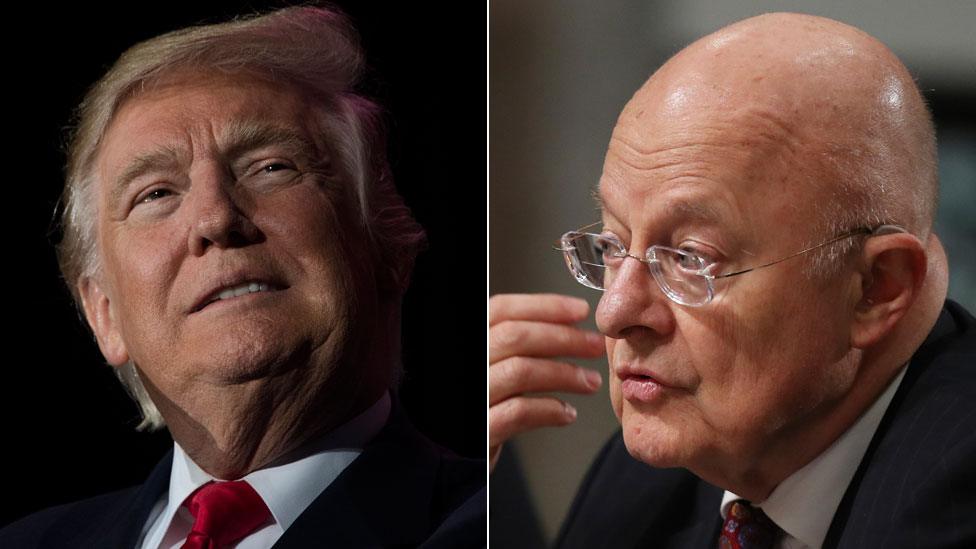
- Published22 December 2016
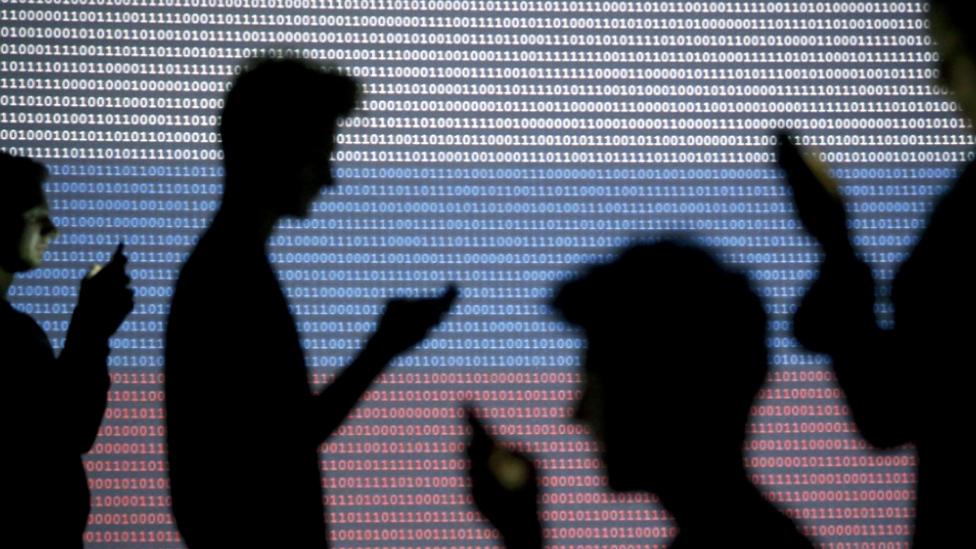
- Published27 October 2016
